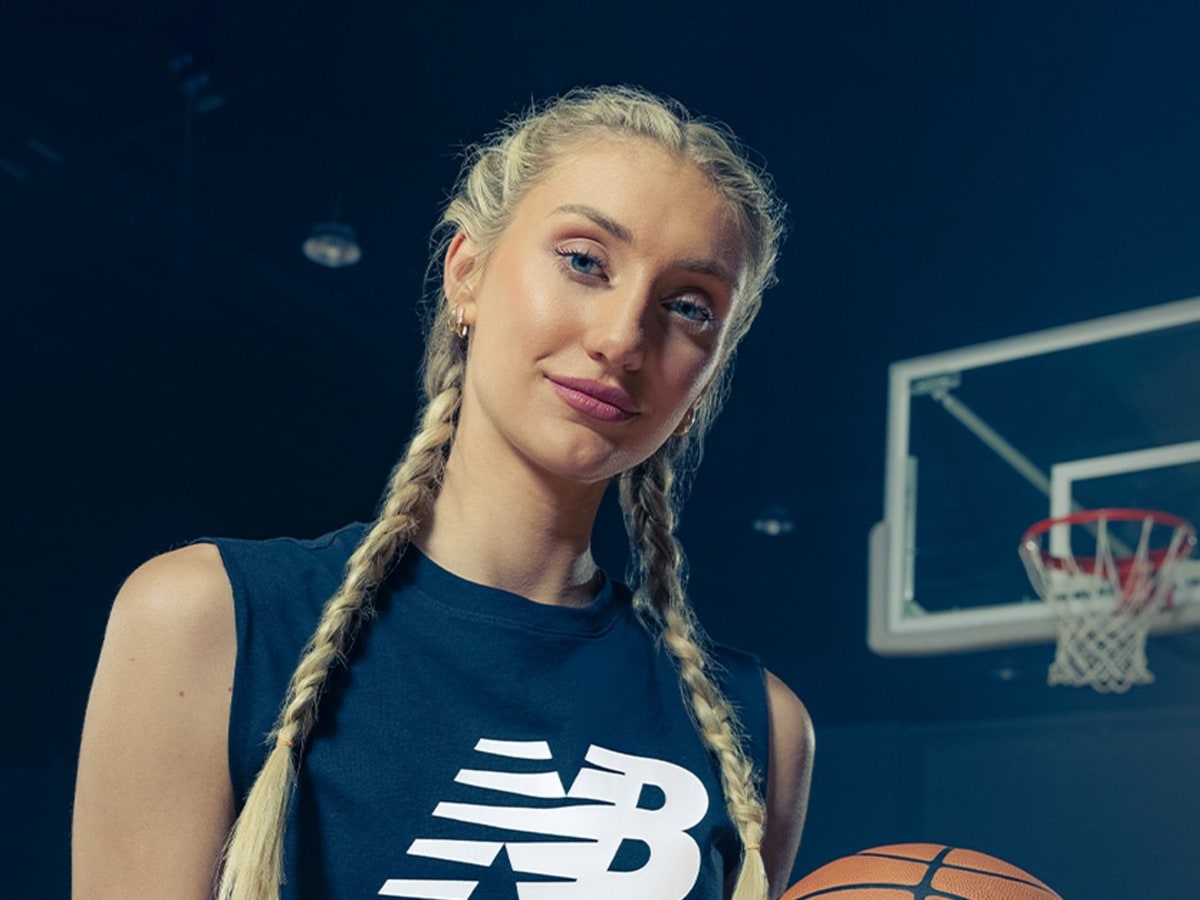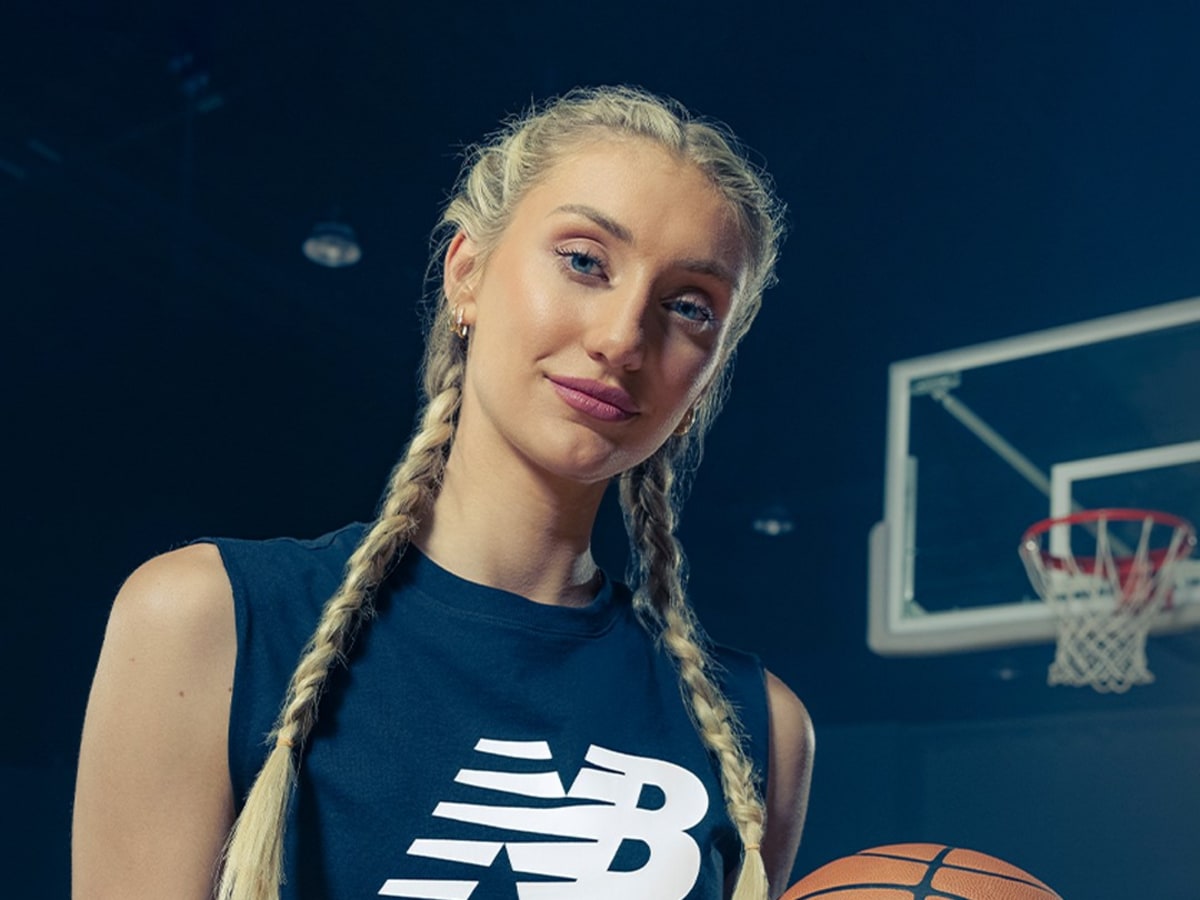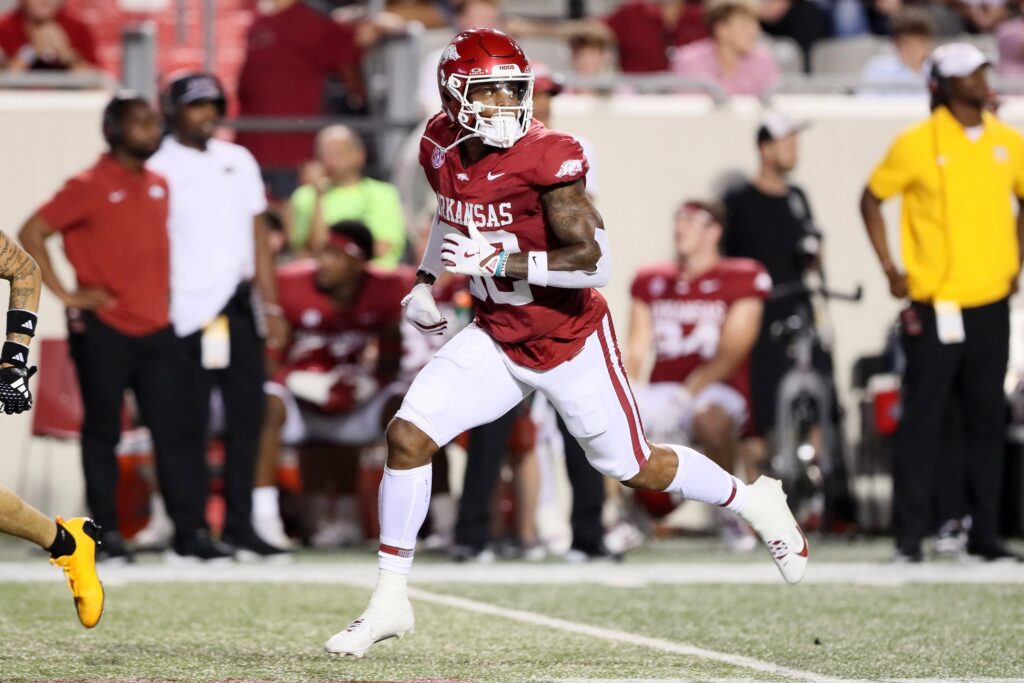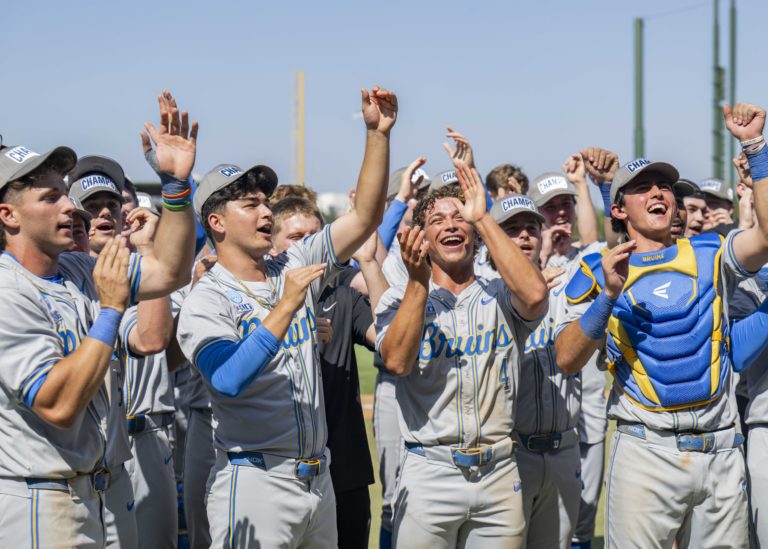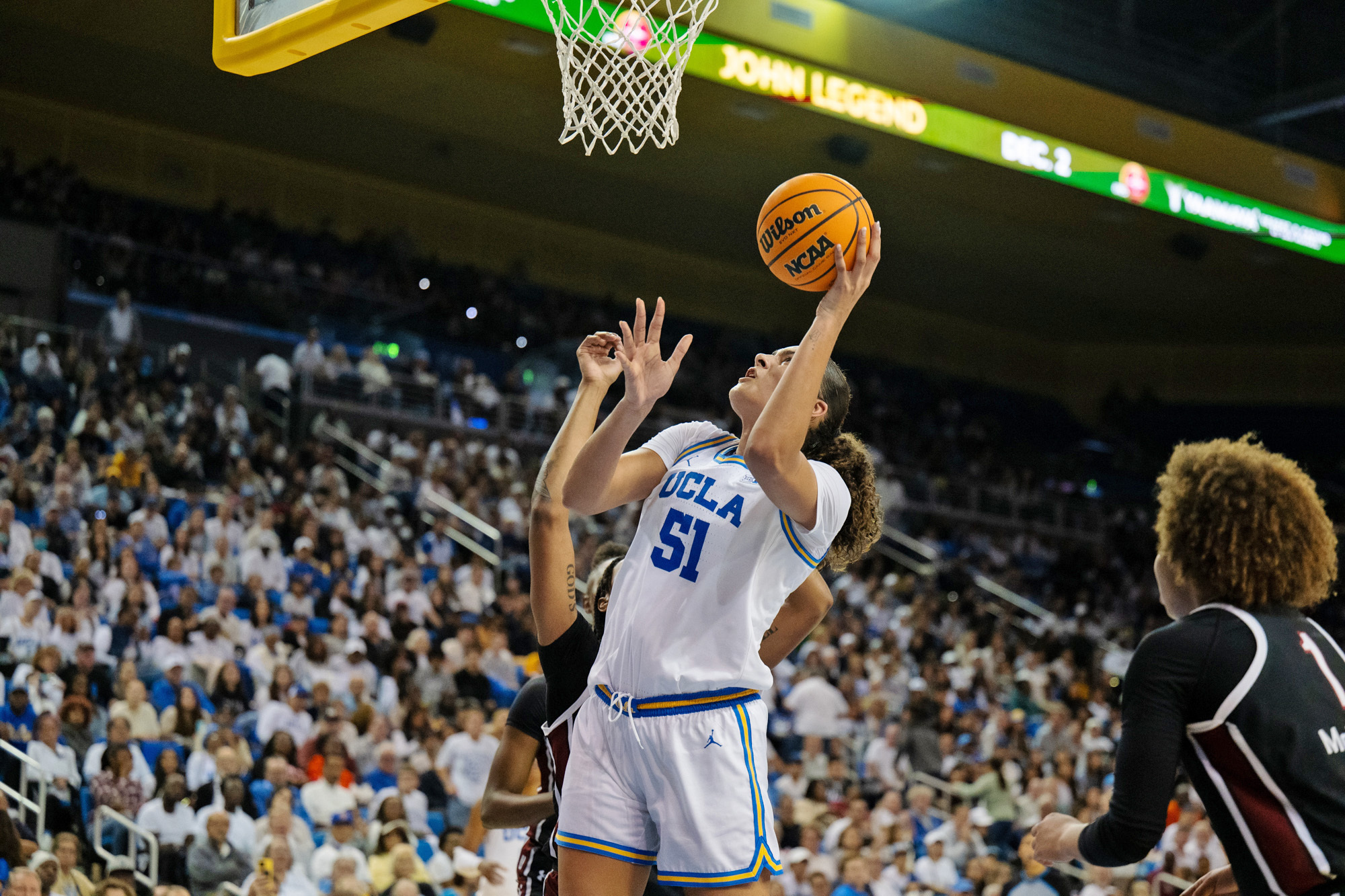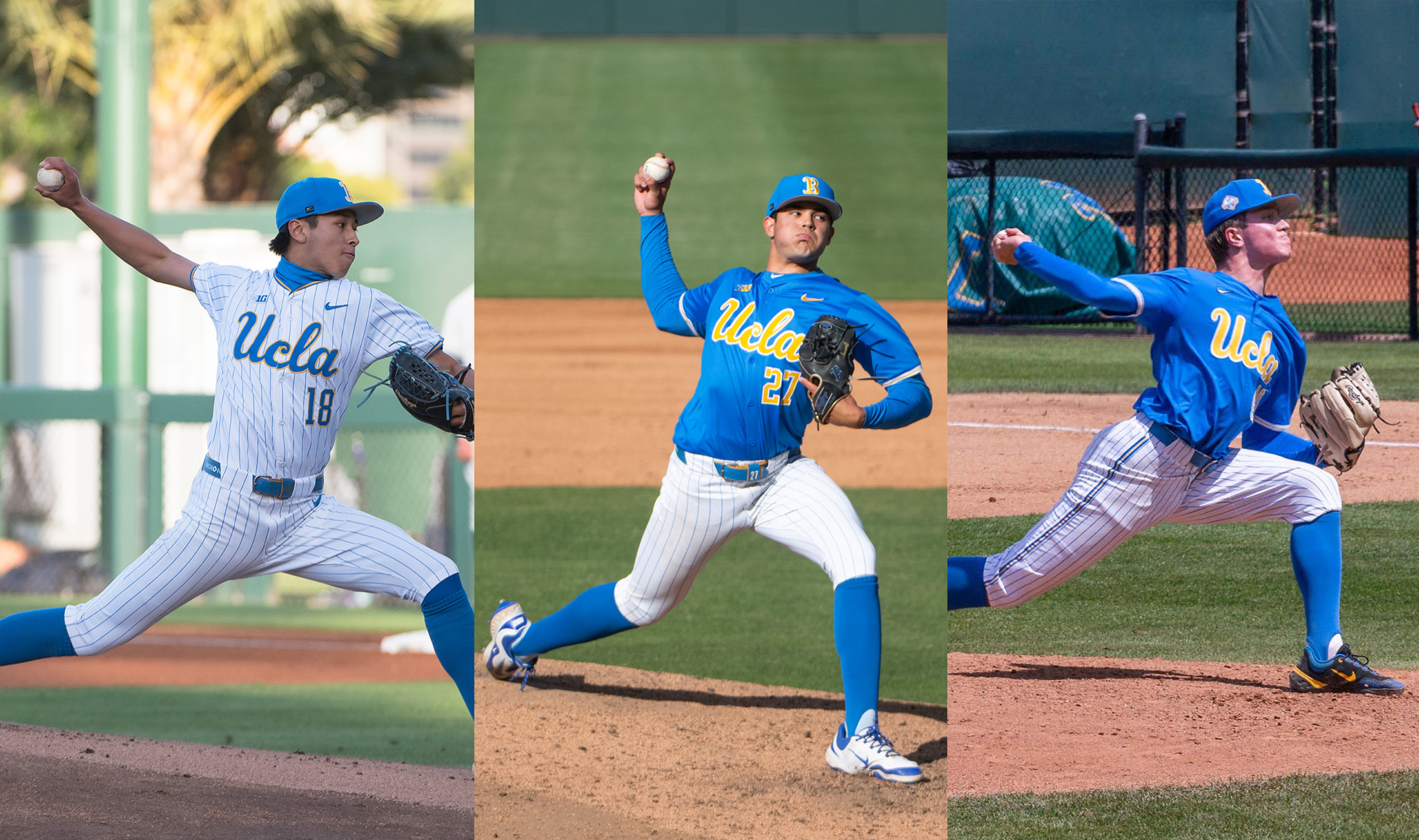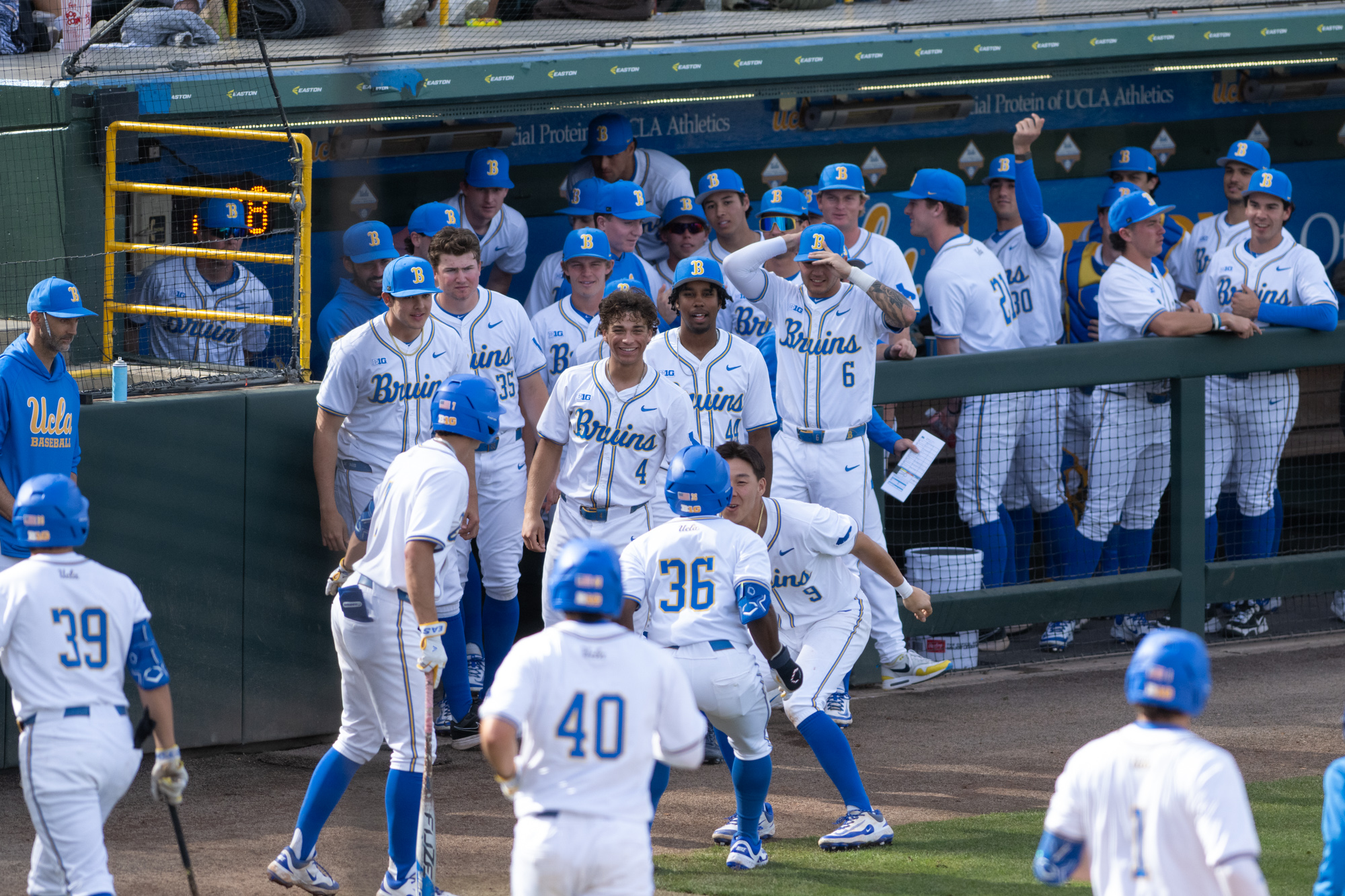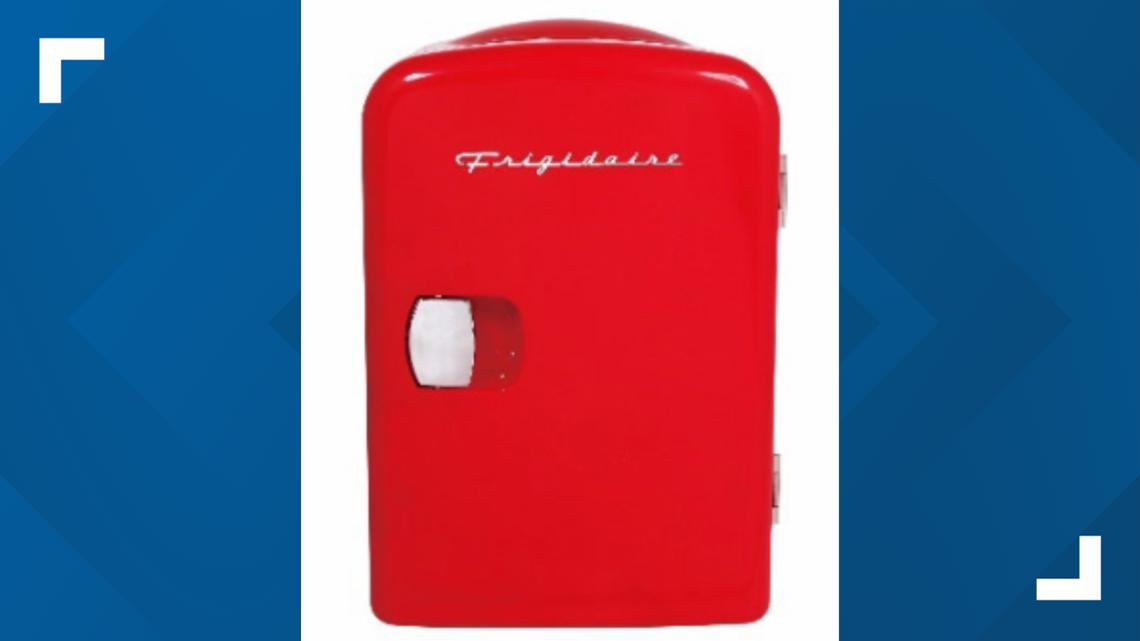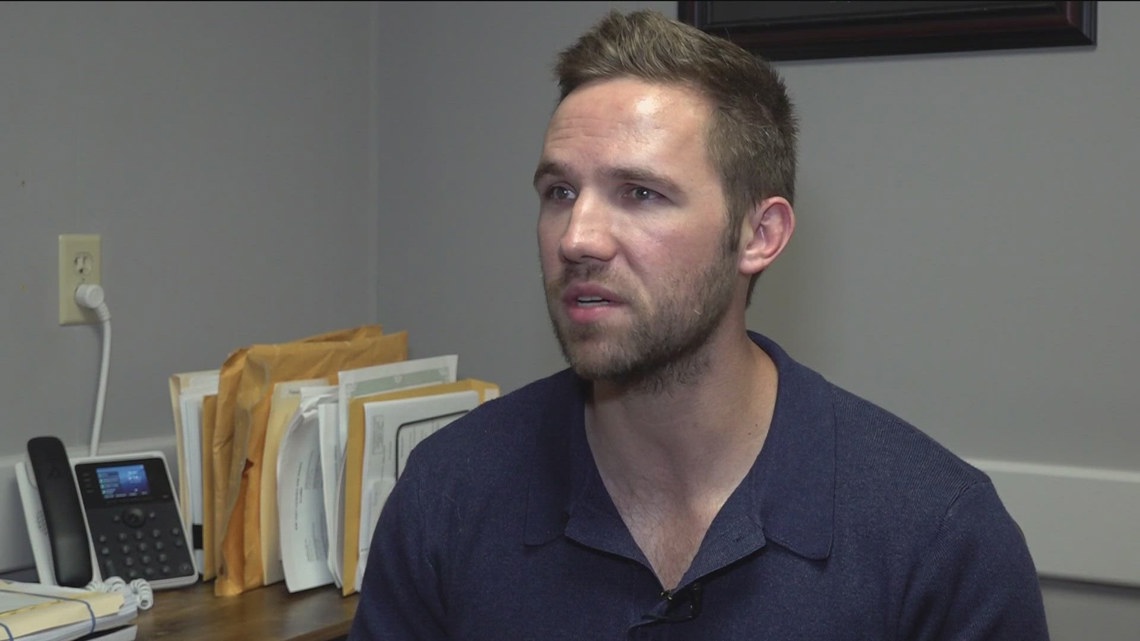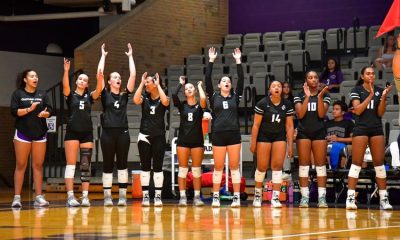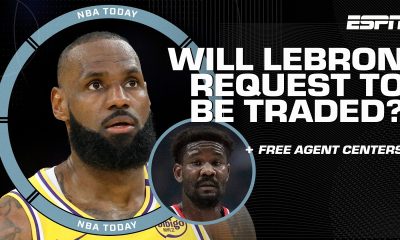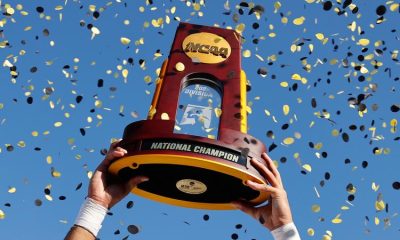Michael Cohen
College Football and College Basketball Writer
LAS VEGAS — A little more than two months ago, as Michigan embarked on its summer break following the completion of spring practice, some of the Wolverines got together to play pickup basketball, one of their favorite group activities away from the football field.
But when veteran edge rusher Derrick Moore arrived at the court, he quickly noticed the presence of someone who shouldn’t have been in attendance: freshman quarterback Bryce Underwood, the five-star phenom whose commitment to Michigan last November transformed him into an NIL multi-millionaire long before his 18th birthday, which is still a few weeks away.
“What are you doing here?” Derrick Moore asked. “You’re not supposed to be here.”
The chilly reaction had nothing to do with what he thinks of Underwood as a person. Like so many of his other teammates and coaches, Derrick Moore is now a wholehearted believer in the teenage prodigy after observing how Underwood, the No. 1 overall recruit in the country, has carried himself since flipping his commitment from LSU to Michigan last November and enrolling over the winter. Underwood joined the Wolverines in time for their bowl prep against Alabama and then took plenty of reps during spring ball amid a quarterback room thinned by injuries and transfers alike. All signs now point toward him being the team’s starter once the regular season arrives.

Michigan QB Bryce Underwood (19) signs autographs for fans before the ReliaQuest Bowl against Alabama. (Photo by Sarah Robbins/Icon Sportswire via Getty Images)
Instead, Derrick Moore’s objection to Underwood playing basketball on that summer day was purely economic, even if he originally rolled his eyes a bit at the monetary figures attached to Underwood’s recruitment. One spring was all it took for Moore to deem it unwise of the program’s most valuable asset — a player who reportedly inked a market-resetting NIL deal worth between $10 million and $12.5 million over four years — to risk injury during a meaningless social activity. Especially after defensive coordinator Don “Wink” Martindale spent the spring yelling at his players to “stay away from Bryce, don’t touch Bryce at all!” in acknowledgment of how vital Underwood’s health really is.
“I feel like we do a good job protecting him and also giving him good advice,” Derrick Moore said while representing the Wolverines at Big Ten Media Days. “He’s worth a lot, so we’ve got to make sure he knows. I feel like he already knows, but I feel like we’ve got to do a good job of reminding him that he can’t do too much. And if you do play basketball, no jumping, no jumping at all.”
Underwood, of course, was nowhere to be found in the South Seas Ballroom at Mandalay Bay, where the Wolverines’ contingent of Derrick Moore, fullback/tight end Max Bredeson, inside linebacker Ernest Hausmann and second-year head coach Sherrone Moore were responsible for telling wave after wave of reporters about the program’s shiniest new toy. It would have been thoroughly un-Michigan-like for Moore to bring Underwood to this week’s event, the league’s unofficial kickoff party for the 2025 campaign, though Colorado head coach Deion Sanders brought his true freshman quarterback, Julian Lewis, to Big 12 Media Days earlier this month. The Wolverines are digging in their heels to slow the Underwood hype train from picking up too much speed, but everyone around the program — let alone fans outside it — can sense the cars beginning to careen off the track.
In a last-ditch effort to fortify himself against the barrage he surely knew was coming, Moore responded to the first question about Underwood by reminding the media that Michigan has yet to name a starting quarterback, that the competition is wide open entering fall camp, that Fresno State transfer Mikey Keene and East Carolina transfer Jake Garcia and former four-star prospect Jadyn Davis will all have chances to stake their claim between now and the season opener against New Mexico on Aug. 30. “There is no starter,” Moore said.
But that didn’t stop reporters from asking Moore about whether the extra reps Underwood took during the spring, when Keene was recovering from an undisclosed injury and Garcia had not yet joined the program, accelerated the timeline for when he will be ready to play. Or about how Underwood has embraced the possibility — inevitability — of starting for Michigan, the winningest program in college football history, as a true freshman. Or about why the Wolverines won’t just declare Underwood the starter given the extreme financial commitment they’ve made to him. All those questions came in the first third of Moore’s allotted media time.
“His job is to just go be the best teammate, best football player he can be,” Moore said. “And whoever that person is, it’s going to take a village. And for us to be a successful program, to be a successful football team, we have to do a great job surrounding that person with weapons on the football field [and] the weapons mentally to be successful.”
Still, there was a fascinating juxtaposition on Thursday between the way Moore and Michigan’s upperclassmen spoke compassionately, almost tenderly, about Underwood’s numerical age — he’ll finally turn 18 next month — and the slack-jawed reverence with which they described his maturity as an athlete, likening his habits and disposition to those of seasoned veterans.

Michigan QB Bryce Underwood #19 prepares to receive the ball during the second half of the Michigan Maize vs Blue Spring Football Game. (Photo by Aaron J. Thornton/Getty Images)
On one side of the room was Bredeson, a fifth-year senior and one of the program’s longest-tenured players, telling reporters that he takes “a little bit of pride and responsibility in being like the older guy who can kind of calm college football down for him,” while also admitting that nobody else in Michigan’s locker room can understand the life that Underwood currently leads, from the sheer attention generated by his every move to the opportunities that land at his feet.
On the other side of the room was Derrick Moore, a former blue-chip recruit in his own right, expressing genuine awe about how someone so young can display such unwavering focus and concentration, traits Moore said he never came close to matching at that age.
Underwood, who grew up a half hour from Michigan’s campus, has already developed a reputation for being one of the first to arrive at Schembechler Hall each morning and one of the last to leave each night, a classic football cliché bestowed upon a team’s hardest workers. He’s known for taking the field alone 20 minutes prior to every session, headphones wrapped around his ears, to study that day’s practice script and visualize the drills in his mind. He builds chemistry with the wide receivers and tight ends via extra throwing sessions that often run until the wee hours of the morning. He competes maniacally in the weight room and has packed enough muscle onto his 6-foot-4 frame to reach 230 pounds. He accepts constructive criticism from anyone in the building and carries out menial tasks without a hint of rebuttal.
“He’s not no average 17-year-old,” Derrick Moore said. “With a lot of money that’s coming in, he’s pretty humble. If he does anything wrong, he takes full accountability for it. You don’t really hear too much trouble out of him, you know? He does everything like a pro.”
Even if that means sitting out of pickup basketball.
Michael Cohen covers college football and college basketball for FOX Sports. Follow him at @Michael_Cohen13.
Want great stories delivered right to your inbox? Create or log in to your FOX Sports account, and follow leagues, teams and players to receive a personalized newsletter daily!
recommended

Get more from the College Football Follow your favorites to get information about games, news and more

